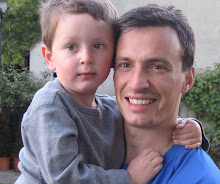Wednesday, January 21, 2015
Myanmar's long walk to freedom
The last time I travelled to Myanmar was in June 2006. I was travelling in Shan State at a time when the ruling military government was presiding over a plummeting economy, had silenced iconic democracy leader Aung San Suu Kyi, and was engaged in a devastating conflict against many of Myanmar’s ethnic groups.
Access to the country for foreigners was very difficult, much less the presence of foreign iNGOs. The refusal to allow foreign aid agencies to assist the survivors of the deadly Cyclone Nargis – which killed 130,000 mostly farmers in the Irrawaddy Delta in 2008 – was just one example. The prospect of a transition from military rule where the people could take control of their own development seemed a distant hope.
Many of the challenges faced by Myanmar still persist today but I would not have predicted the degree of change since my last visit.
General Than Shwe’s rule has given way to a new leader, President Thein Sein, who has ushered in a period of reform since 2011. Control of the press has been relaxed. I was able to discuss politics in Yangon’s street food restaurants in a way which would have been impossible a few year before. Aung San Suu Kyi has not only been released from over a decade of house arrest but the party she founded, the National League for Democracy, has been officially registered and its party leaders released from prison. Suu Kyi herself is now a serving MP in the transitional parliament – something that seemed inconceivable back in 2006. Fragile ceasefires have also been signed with some of the ethnic armies, including with the Karen, which has seen a general reduction in fighting. A greater number of NGOs have been allowed to open offices and start to run programmes for the first time since the military took power in 1962.
Economically, Yangon is opening up like a tulip in the spring sunlight. The modest market liberalisation is starting to take effect with new hotels, apartments and offices being constructed on Yangon’s ancient streets. The price of consumer goods like mobile phones has fallen sharply. Two years ago, it cost $1500 to purchase a SIM card. Today, it costs $1.50, opening up communications technology to ordinary people for the first time.
Optimism should be tempered by the reality that the military is still in control in Myanmar with a minimum of 25% of the seats in the parliament. The health and education indicators are still the lowest in Asia, especially in the ethnic areas. According to Transparency International, Myanmar ranks 157th least transparent out of 177 countries. Aung San Suu Kyi has been effectively barred from standing for President in the 2015 elections on account of the Anglo identity of her two children and there continues to be significant oppression against ethnic minorities and in particular, the Muslim Rohingya people.
However, VSO have grasped the opportunity to make a positive contribution to Myanmar’s development. Over the last 18months, VSO has established an office, recruited a talented and committed staff team and have currently got 30 volunteers placed across the country – mostly focused in building the capacity of English language teachers in 21 of Myanmar’s teacher training colleges.
Having already established a program in education, the team in Yangon have set a three pronged strategy to make an impact in the sectors of health, education and strengthening civil society. While the civil society strategy is still emerging, the focus of the health and education teams will be on equipping Myanmar’s teachers and health professionals to increase the quality and access for children receiving an education and to increase neo-natal survival rates and maternal mortality rates.
For a country that has experienced isolation for so long, VSO’s model of sharing expertise and knowledge, could scarcely be more important. Furthermore, because of the context of the country, working with national volunteers is not yet feasible, meaning that international volunteers are the critical intervention with which the team intends to deliver impact in Myanmar.
The team’s aspiration is to grow its impact and influence rapidly and to have a strong presence of volunteers across the country by April 2016. Funds and volunteers will be needed to ensure VSO’s newest country program can help continue the pace of change in this remarkable country.
Subscribe to:
Post Comments (Atom)




No comments:
Post a Comment